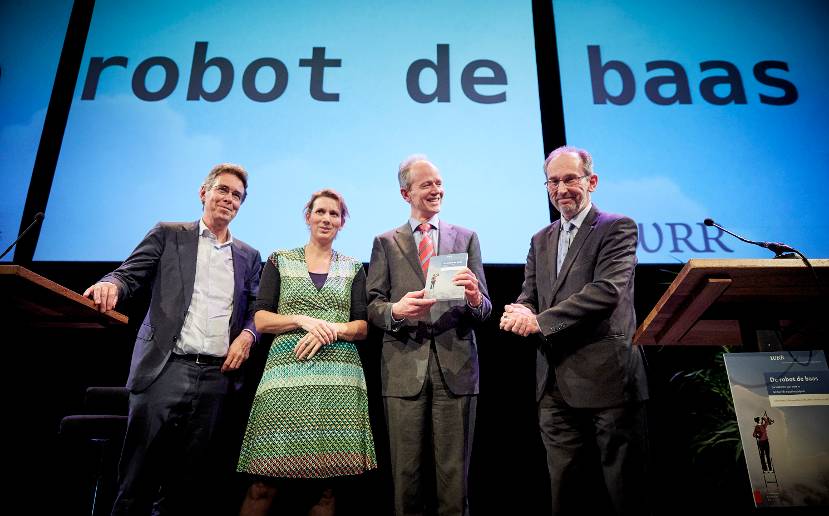WRR calls for inclusive robot agenda
Robotisation will change the way we work in the future. To ensure that robotisation is good for the economy and for workers, a robot agenda is needed. The central focus in that agenda must be the complementarity of people and machines, i.e. enabling people to work better with machines. This is stated in the WRR Investigation ‘Mastering the robot’ (De robot de baas) , which was presented on 8 December.

In the report, a selection of technology experts, economists and other scientists set out their views on what robotisation and digitisation mean for the future of work. One conclusion is that it is unlikely that half of all jobs will disappear over the next two decades, as is sometimes predicted. This is partly because new jobs will also be created. What will change is the nature of work.
There are four key themes here:
- Investing in robotisation with a focus on co-creation. Different parties (government, scientists, employers, employees) need to invest jointly in robotisation, with co-creation as the central aim, in which new applications are developed together with the people who will have to work with them.
- Focusing on developing complementary knowledge and skills at all levels, both in the education system and in relation to ‘lifelong learning’. A higher education or technical qualifications do not in themselves offer an adequate response to the ever more intelligent machines. The central question to be answered is which tasks, relationships and responsibilities will (or do we want to) remain with people.
- Ownership of work. Robotisation has the potential to increase the quality of work and the autonomy of workers, but also to reduce it. It is important to avoid negative consequences such as work stress and burnout and, on the positive side, to promote pleasure at work and productivity. The key question here is how to enable people and technology to work together in such a way that people remain masters of their own work (and over the robot).
- New distribution issues. There will be people who are unable to keep up fully in the robot society. It is impossible to predict who they will be, and ‘one size fits all’ measures are therefore not the best way forward. Rather, a repertoire of different policy instruments is needed to help and support people and to ensure that income differentials do not increase.
Inclusive robot agenda
Robotisation is a slower process than is often forecast, and turns out differently in practice. The Netherlands, like many other countries, currently invests little in robots. The government, but also groups such as scientists, employers, employees and their organisations, can influence the way in which robot technology is developed and applied. That requires an ‘inclusive robot agenda’ which promotes the complementarity of people and machines: not trying to replace as many people as possible by robots (substitution), but enabling people to become more productive by working with robotics.
The WRR Investigation consists of contributions from Linda Kool, Rinie van Est, Martijn Wisse, Edward Skidelsky, Richard Freeman, Casper Thomas, Fabian Dekker, Anna Salomons, Kees Marges and Jan Popma. The report is edited by WRR staff Robert Went, Monique Kremer and André Knottnerus (WRR chairman). Chapter 2 presents the WRR’s vision and was written by Went and Kremer.